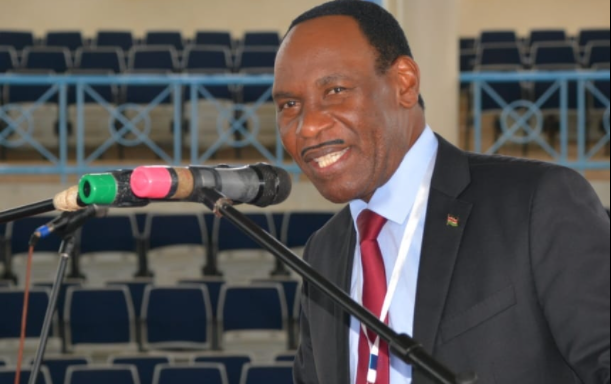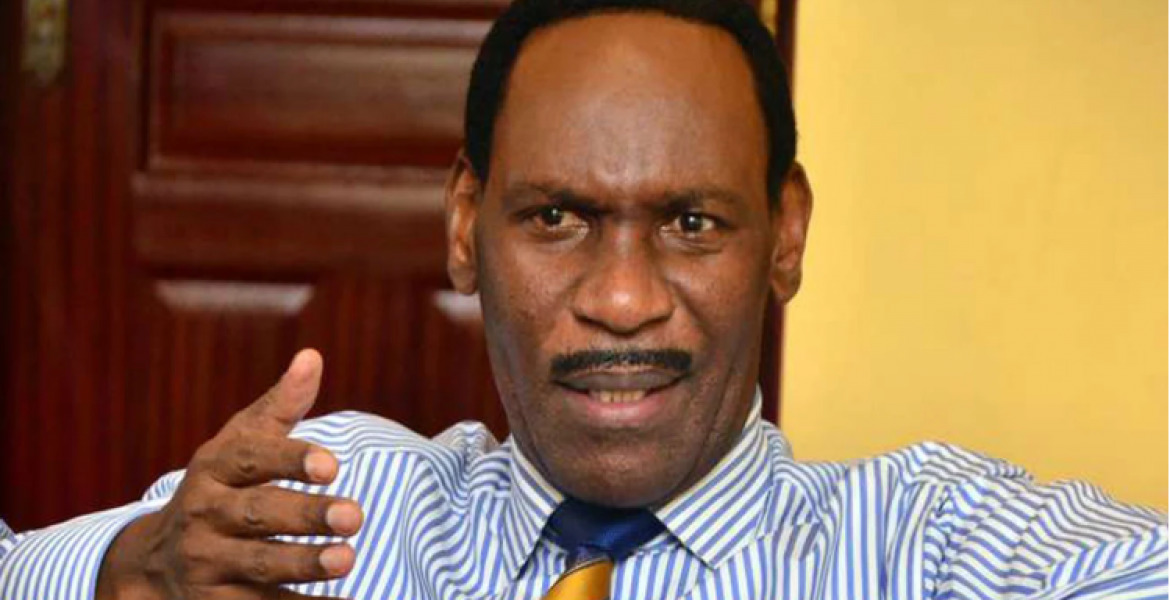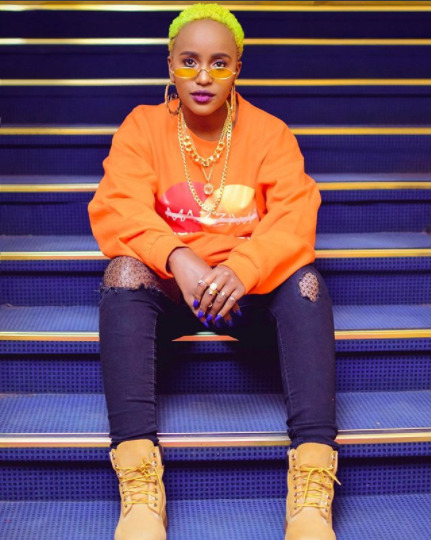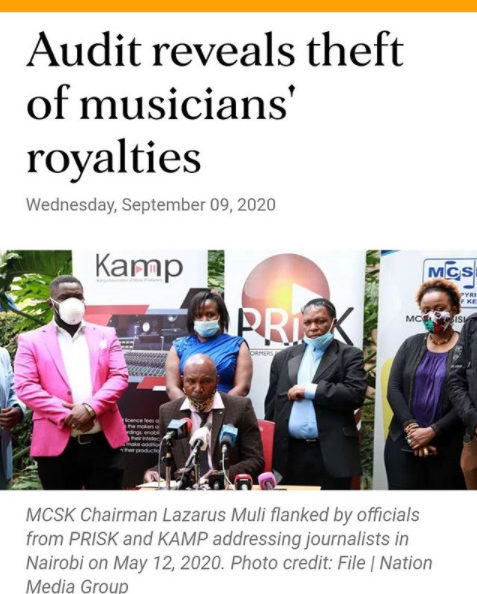Perhaps a positive shift is underway, signifying progress or merely the appearance of one. However, skepticism still lingers among many artists regarding the distribution of royalties.
For decades, Kenyan artists have bemoaned the meager royalties allocated to them in each distribution cycle by the three Collective Management Organizations (CMO): Music Copyright of Kenya (MCSK), Kenya Association of Music Producers (KAMP), and Performers Right Society of Kenya (PRISK).
When Dr. Ezekiel Mutua assumed the position of CEO at MCSK in March 2022, he promised Kenyan musicians that he would make them ‘billionaires.’ However, his appointment generated mixed reactions due to his controversial past as the CEO of the Kenya Films Classification Board (KFCB), marked by online disputes with artists.
“At KFCB, I was a regulator, so I was not there to make friends. But in my new role, I am here to fight for artists. My promise to all musicians is ‘pesa mfukoni’ (money in your pocket). I am here to make our artists billionaires. I will fight for artists the same way I fought for journalists while at the Kenya Union of Journalists,” he declared a week into his new role.
Since taking office, Dr. Mutua has engaged in extensive rhetoric and self-promotion, a characteristic he seems to favor. Nonetheless, his tenure has shown early signs of changes in royalty distributions.
In May 2023, his first distribution as the new MCSK boss was Sh15 million, with the highest earner receiving Sh330,000 and the lowest receiving Sh258. While this represented an improvement from previous years, many artists expressed discontent.
Vocalist Bien Aime Baraza argued that MCSK could still do better despite receiving Sh14,634, an improvement from the Sh2,500 he had received in 2022. In response, Mutua defended MCSK, stating that the distribution was better given the license issues they faced with the regulator, the Kenya Copyright Board of Kenya (KECOBO).
On January 25, MCSK made its first royalties payout of the quarter, totaling Sh20 million at Safari Park Hotel, Nairobi. The earnings were higher than the previous distribution, with the lowest recipient getting Sh5,000 and the highest receiving close to Sh800,000, according to Mutua.
While the list might not be exhaustive, here are some of the highest earners from the recent disbursement, as disclosed at Safari Park:
- Rehema Lugose – Sh757,092
- Rueben Kigame – Sh122,410
- Otile Brown – Sh120,000
- Praise Makena – Sh110,000
- Marakwet Daughter – Sh108,123
- Stephen Kasolo – Sh106,862
- Joseph Shisia Wasira – Sh101,137
- Joseph Ngala – Sh101,032
- Jackson Wambua – Sh91,524
- Solomon Mkubwa – Sh74,138
- De Mathew – Sh70,094.
Other artists receiving over Sh100,000 but choosing not to disclose their payments publicly included Bien Aime Baraza, Nyashinski, Jua Cali, Florence Mureithi, Octopizzo, Samido, Steve K, and gospel singers Deno, Mary Wanjiru (Shiro Wa JP), Ruth Wamuyu, Anastacia Mukabwa, and Sharry Martin.











